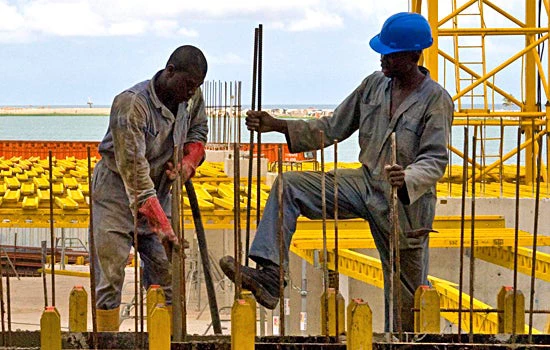The Importance of Skilled Labor in Nigeria’s Real Estate Industry
Nigeria’s real estate industry is one of the fastest-growing sectors in the country, driven by urbanization, population growth, and increasing demand for residential, commercial, and industrial properties.
However, the success of this industry heavily depends on the availability and quality of skilled labour.
Skilled workers, including engineers, architects, bricklayers, electricians, plumbers, and carpenters, play a crucial role in ensuring the durability, safety, and efficiency of real estate projects.
This article explores the importance of skilled labour in Nigeria’s real estate industry and the challenges it faces.
1. Ensuring High-Quality Construction
Skilled labour is essential in maintaining construction quality. Poorly trained workers can lead to substandard buildings that may collapse or require constant repairs. Skilled professionals ensure:
- Proper material selection and handling
- Accurate measurement and alignment
- Adherence to building codes and safety regulations
- Effective application of construction techniques
2. Enhancing Efficiency and Productivity
Construction projects require precision, and skilled workers complete tasks faster and with greater accuracy.
With their expertise, projects are delivered on schedule, reducing the risk of delays that could lead to financial losses.
Skilled labourers can also operate machinery and use advanced construction technologies, increasing overall efficiency in the industry.
Read This: How Much Does a Water Heater Installation Cost in Nigeria?
3. Promoting Safety in the Industry
The construction industry is inherently dangerous, with risks such as falls, equipment mishandling, and structural failures.
Skilled labourers are trained to follow safety protocols, minimizing workplace accidents and injuries.
This not only protects workers but also reduces legal liabilities and compensation costs for developers.
4. Reducing Project Costs in the Long Run
While hiring skilled labour may seem costly initially, it significantly reduces expenses in the long run. Poorly constructed buildings often require frequent repairs, leading to higher maintenance costs.
Skilled workers deliver high-quality results that require fewer corrections, saving developers and property owners money over time.
5. Enhancing Real Estate Investment and Economic Growth
A well-trained workforce improves investor confidence in Nigeria’s real estate market. Foreign and local investors are more likely to invest in projects that demonstrate quality workmanship and reliability.
A thriving real estate sector creates employment, stimulates other industries such as cement, steel, and interior design, and contributes to economic growth.
6. Supporting Sustainable and Innovative Construction
With global emphasis on sustainability, skilled labour is essential for implementing green building techniques, such as:
- Energy-efficient construction
- Use of eco-friendly materials
- Smart building technologies
- Waste reduction strategies
Workers with specialized skills help Nigeria’s real estate industry align with global trends, ensuring long-term viability and environmental responsibility.
Challenges Facing Skilled Labor in Nigeria’s Real Estate Industry
Despite the importance of skilled labour, several challenges hinder its effectiveness:
- Shortage of adequately trained professionals due to inadequate vocational training programs.
- Lack of proper certification and regulation leads to unqualified workers handling critical projects.
- Brain drain, where skilled professionals leave Nigeria for better opportunities abroad.
- Limited access to modern construction technology, reducing efficiency and innovation.
- Poor working conditions and low wages, discourage young people from pursuing careers in skilled trades.
Solutions to Strengthen Skilled Labor in Nigeria
To address these challenges, stakeholders must take proactive measures, including:
- Investment in technical and vocational education to train more artisans and professionals.
- Government policies to standardize skills certification, ensuring only qualified workers handle projects.
- Collaboration between real estate firms and training institutions to align education with industry needs.
- Improved working conditions and competitive wages to retain skilled workers and attract new talent.
- Promotion of apprenticeships and mentorship programs to facilitate knowledge transfer between experienced workers and trainees.
This is for You: How much do painters charge per square meter in Nigeria?
Conclusion
The real estate industry in Nigeria cannot thrive without a competent and skilled workforce.
From ensuring high-quality construction to enhancing safety and efficiency, skilled labour is the backbone of sustainable real estate development.
Addressing the challenges faced by the workforce through proper training, certification, and incentives will strengthen Nigeria’s real estate sector, attract investment, and boost economic growth.
It is time for all stakeholders to prioritize skilled labour development for the future of Nigeria’s built environment.

